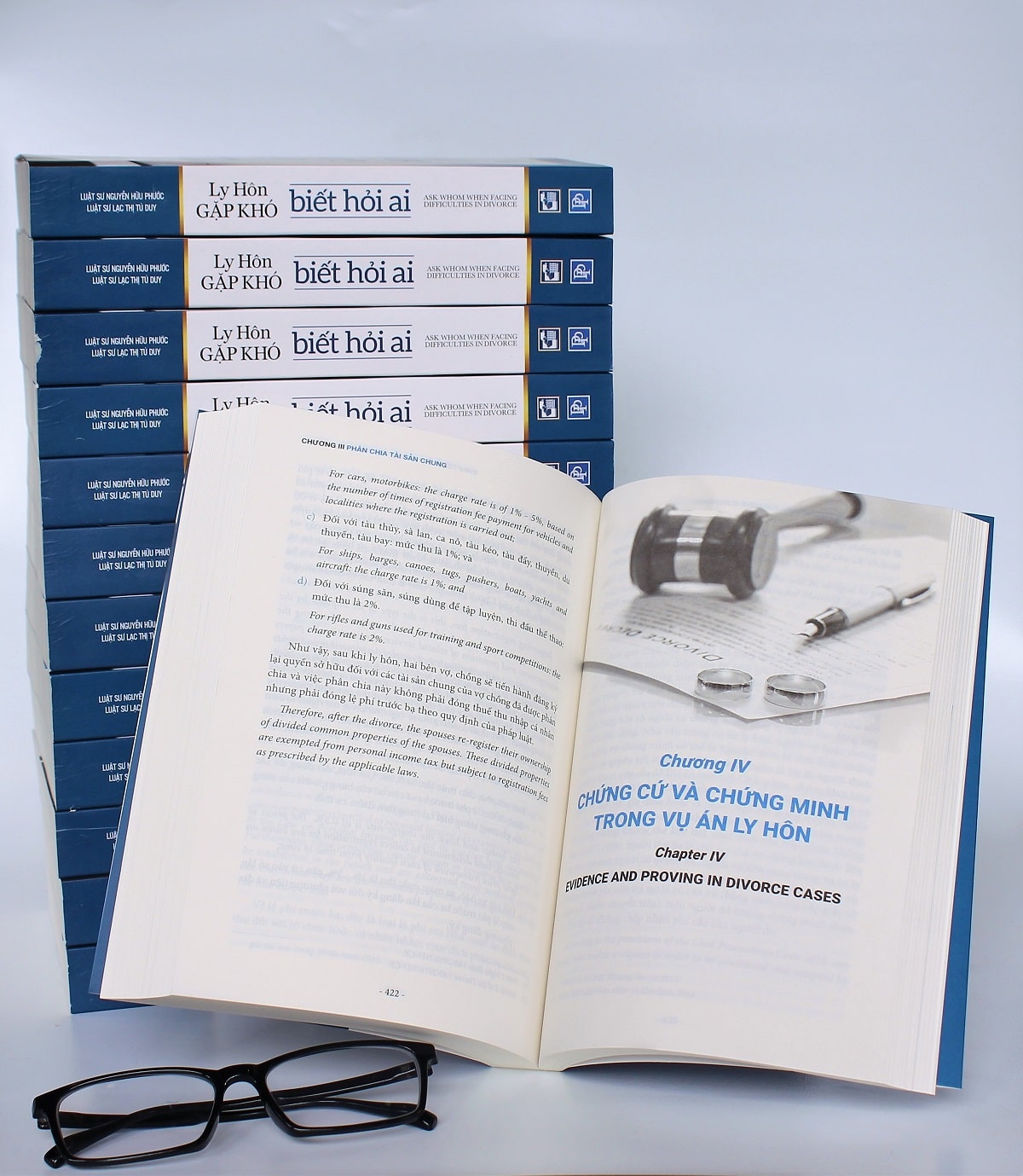In a divorce case where one of the spouses is disabled (a dumb), shall a person knowing the dumb’s script, language and signs be required under the law?
According to the Civil Proceedings Law, in principle any spoken or written language shall be presented in Vietnamese. Therefore, the interpreter will not only be involved in cases where the spouses are using a foreign or ethnic language but he or she shall also be required in cases a involved spouse with a disability who must use his or her own language when participating in a case. Such person is required to convey the spouse’s intentions and presentation, making it clearer and easier for the Court to understand. They, in accordance with the provisions of the Civil Proceedings Code 2015, are also considered as interpreters[2]. Thus, in a divorce case, with regards to a spouse with a disability (a dumb), under the law, an interpreter shall be required to convert the “sign language” used by such spouse into Vietnamese.
Who shall bear the expenses of such an interpreter?
The presence of an interpreter in a divorce case shall be requested by either the spouse or the Court itself. In either case, the provisions related to expenses for the interpreter shall differ.
If an interpreter is requested by the spouses, they shall bear the interpreter expenses and the rate of charge shall be stipulated in the agreement of the spouses either through a service contract or in other forms. However, the spouses are also freely to come to an agreement on which spouse will bear the interpreter’s expenses without the necessarity of such expenses to be borne by the requester.
If the Court requests an interpreter to be present, expenses for the interpreter shall be borne by the Court. In this case, expenses for the interpreter shall be applied under the law, including but not limited to the remuneration of the interpreter; travel expenses; costs of stay; other expenses as prescribed by law[4]. The condition for payment is that the expenses must be incurred and recorded in lawful invoices and other documents according to the requirement of law.
Who shall be entitled to selecting the person knowing the dumb’s script, language, and signs?
Under the law, the interpreter shall be selected by one or both spouses but must be approved by the Court. Thus, both spousesshallhave the right to select the one who know the dumb’s script, language, and signs, but this selection shall only take effect upon being approved by the Court. The requirements for the Court’s approval of the interpreter have not been stipulated in the laws clearly. However, it is understandable that the Court’s approval of the designated interpreter is founded on whether that the interpreter is capable of an objective and fair interpretation, and opinions of spouses about such an interpreter. For example, if the husband wishes to select an interpreter A, but that his spouse does not give consent because she is afraid that the interpreter conlludes with her husband. In this case, the Court may not approve the interpreter A as interpreter but may request the spouses to agree on an interpreter.
Except for the spouses, the Court may also select an interpreter when it deems necessary. For example, in a case where the Court summons a mute witness and that both spouses do not request any interpreter, the Court shall appoint an interpreter.
Can either the husband or the wife change the person knowing the dumb’s script, language, and signs?
The interpreter as well as other participants in the procedures having a request for the interpreter, shall refuse to give interpretation or be replaced in circumstances where they fail to undertake their role. For instance, if such a person has participated in a divorce case as one of the other spouse to the litigation (such as a witness, an expert witness, a lawyer, a relative of either spouse), then such an interpreter is required to decline to give interpretation or be replaced by the Court. However, any spouse in a divorce case shall be entitled to request that the Court replace an interpreter to protect his or her interests in some case provided by the law[6]. There are also cases, set forth below, where either the husband or wife will be entitled to request that the Court replace the interpreter, including:
- He or she is also a spouse, representative or relatives of a spouse;
- He or she has participated in the same proceedings as the person protecting the lawful rights and interests of the spouses, witness, or expert witness;
- He or she had conducted the same proceedings as Judges, Juror, Verifiers, Court Clerks, Prosecutors or Controllers; and
- There are grounds for believing that such person cannot be objective in performing his or her duties.
When either the wife or the husband finds that there
are certain grounds for believing that the interpreter falls within any of the cases
set forth above, they shall have the right to request the Court to replace the
person knowing the dumb’s script, language and signs.
[2] Article 81.2 of the Civil Proceedings Code 2015.
[4] Article 52.1 of the Ordinance No. 02/2012/UBTVQH13 on the expenses of examination, valuation; expenses for witnesses, interpreters in civil proceedings and Article 15 of the Decree No. 81/2014.
[6] Article 70.14 of the Civil Proceedings Code 2015.
If you would like more information on how we can assist you with divorce issues, please contact us at: +84 (28) 36223522 or email us at info@phuoc-partner.com

